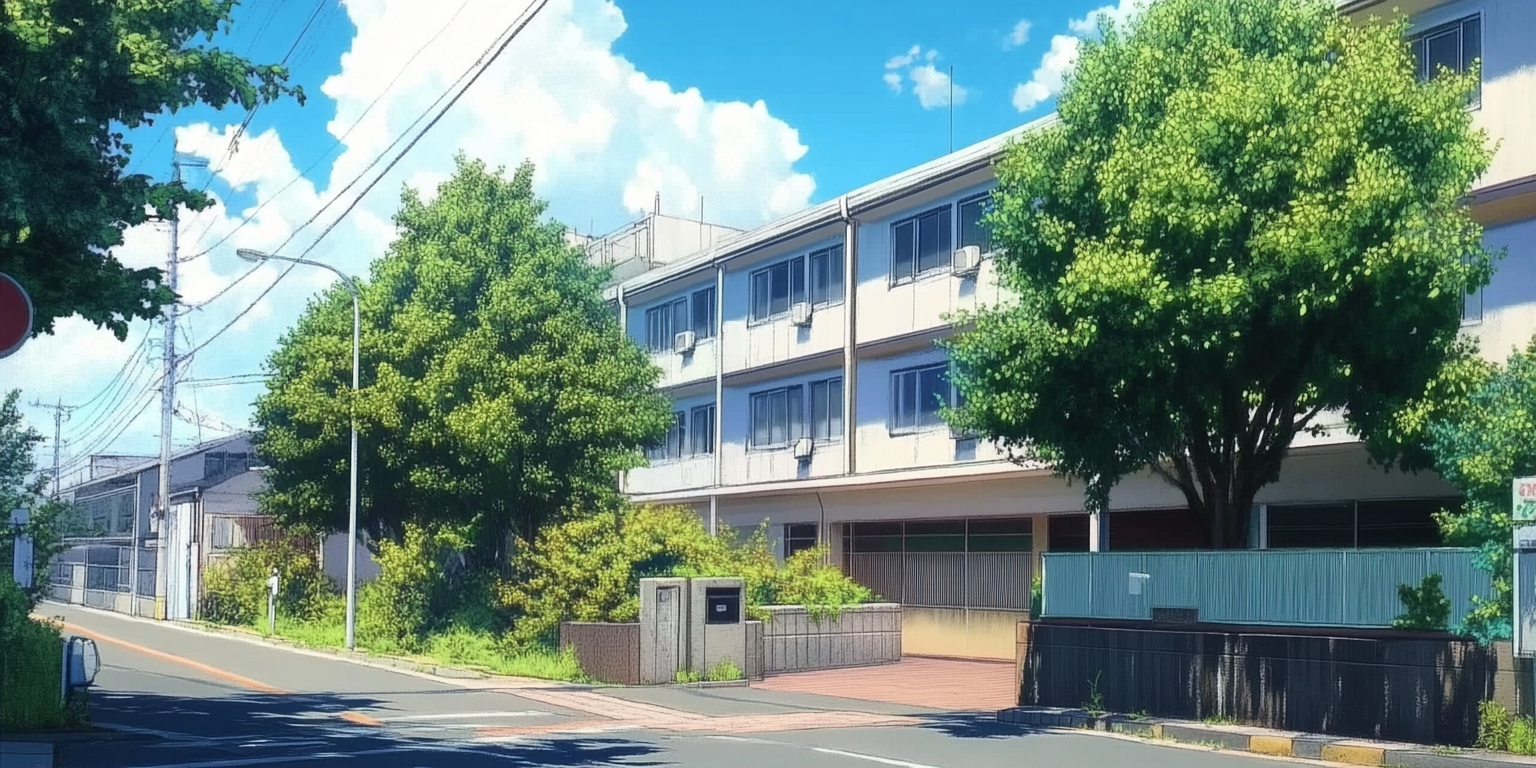
Highlights of this article
- Solve the dilemma of "bank wants mobile phone number, mobile phone wants bank account".
- Recommended Foreigner-Friendly Banks: Yucho Bank and Sumitomo Mitsui Banking Corporation (SMBC)
- The solution after the rejection of the big three: GTN mobile and recommended SIM (ahamo, LUMINE, Y!mobile, UQ mobile)
- Real-life experience sharing: the complete process from rejection to successful processing
- Frequently Asked Questions (FAQ)
- Guided Reading and Reading Suggestions
- What comes first, the chicken or the egg? Suggest to open a bank account first
- Purchase a cell phone number
- The experience of switching phones
- Chapter 2 Summary
- Frequently Asked Questions (FAQ) for Readers
- Related Resources
- Read Next
Guided Reading and Reading Suggestions
This article is suitable for foreign students and exchange students who have just finished their residence registration and are ready to open a bank account and get a cell phone number. I will use first person experience to walk you through the complete process of "opening a bank account → being rejected by the three major telecom companies → finding GTN mobile → buying a new cell phone", and recommend a few foreigner-friendly banks and Ge-Ann SIMs, so that you can feel the warmth and find the information you need quickly.
It is recommended to read the Quick Checklist first, then complete it step-by-step according to the schedule, and finally refer to the FAQ to solve the frequently asked questions.
Quick Check Form (immediately after residence registration)
- Preparation of bank account opening documents (Resident card, seal, passport, student card)
- Open a bank account first (you can fill in your dormitory/college phone number first)
- Pick up your passbook and ATM card (about 1 week)
- Prepare mobile phone number application documents (resident card, bank account, credit card or cash)
- Choosing the right telecom plan (Big 3 vs. Ge-AN SIM)
- If you need to buy a cell phone, confirm the SIM-free version or telecom bundled plan.
What comes first, the chicken or the egg? Suggest to open a bank account first
If you have just arrived in Japan, you will need a bank account in order to save a large amount of cash that you have just exchanged, or to receive a scholarship on a regular basis.
However, when you open an account, you will often encounter the problem that the bank requires a cell phone number, and in order to get a cell phone, you need to have a bank account first, so this kind of "chicken or egg" dilemma gives you a headache.My suggestion is to open a bank account first and then get a cell phone number.
Why do I need a bank first?
- Some banks (e.g. Yucho Bank) allow you to change your dormitory phone number or school phone number after you have applied for a cell phone.
- When applying for a cell phone number, most telecommunication companies require a bank account as a debit account.
- The process of opening a bank account is simpler and requires fewer documents.
Documents Required for Account Opening
- resident card
- Seal (round or square)
- Passport
- Student ID
- Initial deposit (usually 1,000 yen)
Recommended Banks ①: Yucho Bank (Japan Post Bank)
First of all, we recommend "Yukio Bank" for the following reasons:
- ATM MultiBecause this bank has a wide range of ATMs, there are ATMs at every post office, so you can get your money out when you are doing mail-related business.
- No Handling Fee: There are no handling fees during ATM operating hours. Longer operating hours than other parents.
- Fewer documents required: When opening an account, you only need to bring your Resident Card, Circle/Square Stamp, and your Student ID and Passport for emergencies.
- Simple Phone NumberPhone number: You can fill in your dormitory phone number, office phone number, or school phone number first, and then change the number after you have applied for a cell phone.
Remittance Notes
It is important to note that Yucho Bank does not accept Taiwan Dollars/Japanese Yen for overseas remittance, only US Dollars or Euros, and there is a possibility that your account will be frozen. For example, a European housemate asked her parents to send money to a post office account, and her account was frozen for a while, and it took several attempts to get her account unfrozen. Therefore, it is advisable to use other banks when transferring money from overseas. For more details, please refer toYucho Bank Official WebsiteThe
Recommended Banks②: Sumitomo Mitsui Banking Corporation (SMBC)
I opened an account with Sumitomo Mitsui Banking Corporation (SMBC) with the help of the Tohoku University International Student Support Office. As a result of the cooperation between Tohoku University and SMBC, I was able to open an account directly using my student status, and I was able to receive my passbook and ATM card in about a week, which was very convenient. The following are the advantages of this bank:
- School Cooperation: Some universities have partnered with SMBC to offer discounts or streamline the process of opening a student account.
- Overseas Remittance Friendly: Support multi-currency remittance, not easy to be frozen account
- ATMs and Branches: High branch density in major cities (Tokyo, Osaka, etc.) for easy access to business.
For details of remittance and collection methods, please seeSMBC WebsiteThe
Purchase a cell phone number
Purchasing the contract number and cell phone was the last step, but it became the most time-consuming challenge for me.
Rejection by the three major telecommunications companies
I went to three major telecommunication companies (Softbank, docomo, au) and couldn't get a visa for only one year. They suggested that I sign a two-year contract and pay a penalty to terminate the contract after one year, but since I was not fluent in Japanese, the clerks rejected my application despite my senior's help in explaining the situation.
Meet GTN mobile
While chatting in the dormitory lounge, I learned about a telecommunications company that caters to foreigners.GTN mobile"The company specializes in the provision of Asian language service staff. I went to the Shinjuku head office again with the feeling of being rejected, but I was warmly received by the kind and friendly staff. I was impressed by a woman named Huang who explained every expense in detail in Chinese.
GTN mobile Features
- Foreigner Friendly: Multilingual staff in Chinese, English, and Korean.
- Short-term visas are available: even if the visa is only for one year.
- Internet Phone Number: The SIM card provides Internet service only, but the company will provide a set of Internet phone numbers (one for making calls and one for sending SMS).
- Points of Attention: Since it is a VoIP phone, you will not be able to make a call once you run out of Internet traffic.
Recommended Cheap Telecom Companies (Updated 2025)
With the advancement of time, it is no longer as difficult as it was back then to find a door number program that suits your needs, you can refer to the following, apply on the Internet, and convenient, but also reduces the number of ineffective communication with the shopkeeper who does not understand Japanese.
Required information for purchase (common to all)
- Resident card (must be valid for at least 90 days)
- Passport
- Credit card or bank account (in your name)
- E-Mail Address
Comparison of basic information of the four major players
| Project | ahamo | Y!モバイル | UQ Mobiles | LUMINE Mobiles |
|---|---|---|---|---|
| parent companies | NTT docomo | SoftBank | au (KDDI) | LUMINE |
| Network Quality | ⭐⭐⭐⭐⭐ | ⭐⭐⭐⭐ | ⭐⭐⭐⭐ | ⭐⭐⭐⭐⭐⭐⭐⭐ |
| Coverage | No. 1 in the country Best for mountainous areas and outlying islands | Broadly stable Metro Area Excellence | Broadly stable Stable and reliable, with balanced urban and suburban performance | Better in cities, weaker in villages |
| Physical Store | ❌ Pure Online | ⭕ Multiple locations throughout the country | ⭕ Multiple locations throughout the country | ⭕ Major Cities |
💰 Detailed Comparison of Fee Plans
- ahamo (アハモ)
- basic program: 20GB - 2,970yen/month
- Dashengli Program: 100GB - 4,950yen/month
- Included Services: Free domestic calls within 5 minutes
- Overseas Roaming: Free use in 82 countries (within 20GB)
- Y!モバイル (ワイモバイル)
- SYNPRESS: 3GB - 2,178yen/month
- SINPULM: 15GB - 3,278yen/month
- SINPULL: 25GB - 4,158yen/month
- Family Discount: 1,188yen discount per month from the second line onwards
- Additional Benefits: Yahoo! Premium Membership Free, PayPay Points Rebate
- UQモバイル (ユーキューモバイル)
- Miniminiplane: 4GB - 2,365yen/month
- Toktokoplan: 1~15GB - 3,465yen/month (automatically reduced to 2,277yen for less than 1GB)
- Comikomplatz: 20GB + 10 free calls - 3,278yen/month
- cut a family cord: Monthly discount 550yen
- Residential Centerpiece: Discounts on fiber/electricity
- LUXEMBOURG Mobiles (Rakuten Mobiles)
- Rakuten Best Plans:
- ~3GB: 1,078yen/month
- 3~20GB: 2,178yen/month
- 20GB or more unlimited: 3,278yen/month
- Rakuten Link: Free Domestic Calls with Exclusive App
- LUMINE® Points: Spending can accumulate points, which can be used to offset the phone bill.
- Rakuten Best Plans:
🎓 Recommended Programs for International Students
Option A: Budget Priority (Low Dose Users)
Recommended: LUMINE® Mobiles (under 3GB)
- Monthly fee: 1,078yen
- Advantages:
- Cheapest of the four
- Pay as you go, flexible billing
- Free Calls with Rakuten Link
- Suitable for: Students who mainly use WiFi and only check maps and messages when they are away from home.
- Points of Attention: Suburban or rural areas may have weaker signals.
↓↓Click here to apply for "Rakuten Mobile" mobile phone number.
>>LUMINE Mobiles<<
Option B: Balanced Recommended (medium dosage)
Recommended: UQモバイル - コミコミプラン
- Monthly fee: 3,278yen (20GB + free 10-cent call)
- Advantages:
- Well-priced with plenty of capacity
- Includes call time, convenient for contacting schools and part-time jobs.
- Stable quality of au network
- Physical stores are available for consultation
- Suitable for: International students with general usage habits need to balance price and quality.
↓↓Click here to apply for "Rakuten Mobile" mobile phone number.
>>UQ Mobile<<
Option C: Large Capacity + International
Recommendation: ahamo - Basic Programs
- Monthly fee: 2,970yen (20GB)
- Advantages:
- Free overseas roaming for 82 countries (super convenient for returning home or traveling)
- docomo top quality network
- Transparent pricing with no hidden fees
- Free 5-minute call
- Suitable for: Students who frequently need to communicate with their family members, or who will be returning to their home country/traveling.
- Points of Attention: Purely online service, need to deal with problems by yourself
↓↓↓Click here to apply for the ahamo mobile portal (now 20,000 pooints for switching to ahamo).
Option D: Multi-sharing (with friends/family)
Recommended: Y!モバイル - シンプルM
- Monthly fee: 3,278yen → 2,090yen (after family discount)
- Advantages:
- Discount of 1,188yen per line for two or more people
- Improvement of physical market support
- Yahoo!
- PayPay shopping discounts
- Suitable for: International students applying with friends or family members
↓↓↓Click on the link below to apply for the Y!
>>YSTEYS<<
Concluding Remarks for International Students
- Focus on Internet Quality + Travel Often → ahamo
- Limited budget + mainly WiFi → LUMINE® Mobiles
- Need help at the store + more than one person → Y!モバイル
- Balancing the needs of all → UQモバイル
💡 little reminder::
- LUMINE® Mobiles signals may be unstable in university campuses and dormitories, please check first.
- Although ahamo does not have a physical store, the docomo store can help with the application for a fee (3,300yen).
- Short-term Study Abroad Advice on Avoiding Tie-up Programs
- We recommend that you use your prepaid card to test the signals before arriving in Japan.
The experience of switching phones
After getting a SIM card, I decided to get a new phone and went to the Apple Store in Shibuya (now closed) and bought a SIM-card-free iPhone SE to start my new life in Japan.

Points to note when purchasing
Unlike the Taiwan version of the cell phone, the Japanese cell phone will have a "clicking" sound when taking pictures after installing the Japanese SIM card, but if you change back to the Taiwan SIM card, it will become a silent camera again.
There are different opinions on the Internet, saying that it is enacted by Japanese law, but in fact, it is not entirely true. The reason is that there are no legal provisions in Japan that directly regulate the shutter sound of cell phones or smartphone cameras. However, the reason why the shutter sound is mandatory is to protect privacy and prevent clandestine photography.
Background and Purpose
- Privacy: Mandatory shutter sound is intended to protect privacy by preventing the taking of photographs without the consent of others.
- Preventing clandestine photography: Shutter sounds play an important role in deterring surreptitious photography in public places or crowded areas.
Practical Operation
- Vendor AutonomyMost smartphones sold in Japan are designed so that the shutter sound cannot be turned off. This is not a legal requirement, but is a manufacturer-imposed rule.
- Liability: The act of clandestine photographing is prohibited by prefectural ordinances such as the Prevention of Confusing (Chinese: 擾民) Behavior Ordinance, and those who violate these ordinances are subject to penalties.
💡 little reminder::Respect for privacyTake photos of the person you are photographing! When taking photos, be aware of your surroundings and obtain permission from the other party if necessary to avoid violating their privacy.
In short, even though there is no direct legal provision on shutter sound in Japan, it has become a common practice that cell phones are designed so that shutter sound cannot be turned off for privacy protection and to prevent clandestine photography.
Chapter 2 Summary
When you first arrive in Japan as an exchange student, you will face many new procedures and challenges. However, these challenges can be overcome if you follow the steps to complete these important procedures in an orderly manner and seek help from your older siblings and junior teachers along the way. Below is a brief summary of the process:
- Obtaining a Resident Card: Ensure your eligibility for part-time employment by completing the application form for permission to engage in unqualified activities.
- Meeting with Elementary Teachers and Purchasing a Short Term Network Card: Ensure contact and networking needs in the early stages of your stay in Japan.
- Residency and health insurance enrollment.: Ensure legal residency and basic health care.
- Bank Account Opening and Portal Number Application: Choose the right bank for easy money transfers. And choose the right telecommunication plan to make sure that you have a good connection.
Although I encountered some difficulties during the process, with the help of my senior sister and junior teacher, I successfully completed all the steps and started my research life in Japan. I hope that my sharing can help students who are going to Japan, and I wish you all a smooth and happy exchange trip!
Frequently Asked Questions (FAQ) for Readers
- QDo I have to go to the bank first? Can I get a cell phone first?
- A
It is recommended to apply for a bank account first, as most telecommunication companies require a bank account to be used as a debit account. However, some banks (e.g. Yucho Bank) allow you to fill in your dormitory or school phone number first and then change it after you have applied for a cell phone.
- QCan Yucho Bank accept overseas remittances?
- A
Yes, but only USD or EUR is accepted, not TWD/JPY. There is a risk that your account will be frozen, so we recommend that you use another bank, such as SMBC, to handle your overseas remittances.
- QDo I need a stamp? Where can I buy one?
- A
A seal (round or square) is usually required to open a bank account. They can be ordered at 100 yen stores (e.g. Daiso), stationery stores or online. It is recommended to choose a round seal (more commonly used).
- QMy visa is only for one year. What should I do if all three major telecom companies reject me?
- A
You can choose between GTN mobile (foreigner friendly, short term visa available) or Gean SIM (ahamo, LUMINE, Y!mobile, UQ mobile), which do not require a long term contract.
- QWhat is the difference between Goan SIM and the big 3?
- A
Ge-AN SIM is cheaper and more flexible, but may not be supported by a physical store. The three major telecommunication companies (docomo, au, Softbank) have more stable network quality, but the price is higher and usually requires a contract.
- QIs the LUMINE® Mobiles signal stable?
- A
LUXEMBOURG モバイル The signal is OK in big cities, but may be weak in suburbs, countryside or some campuses/dormitories. It is recommended to test with prepaid card before deciding.
- QDoes a cell phone bought in Japan always have a shutter sound?
- A
Yes, when a Japanese SIM card is inserted into a cell phone sold in Japan, the camera shutter sound cannot be turned off (a manufacturer's own specification to prevent clandestine photography). If you switch back to a Taiwan SIM card, the shutter sound can usually be turned off.
Related Resources
- Opening of Foreigner's Guests|Yucho Bank
- Foreign Nationals DeSu ga, Kuchiza opening dekimasu ka? |Sumitomo Mitsui Banking Corporation
- Audit period ga no kurai kakaruka teach me to eat? |LUMINE® Mobiles
- About the confirmation book アップロード|Y!モバイル
- A list of the necessary information for application|UQモバイル
- スマホ カメラ シャッター tone なぜ ?
Read Next
Let's go, let's read the next one!
Want a little refresher on the last one?
Or go back to the EP1 catalog for a different story?





Message Center Feedback